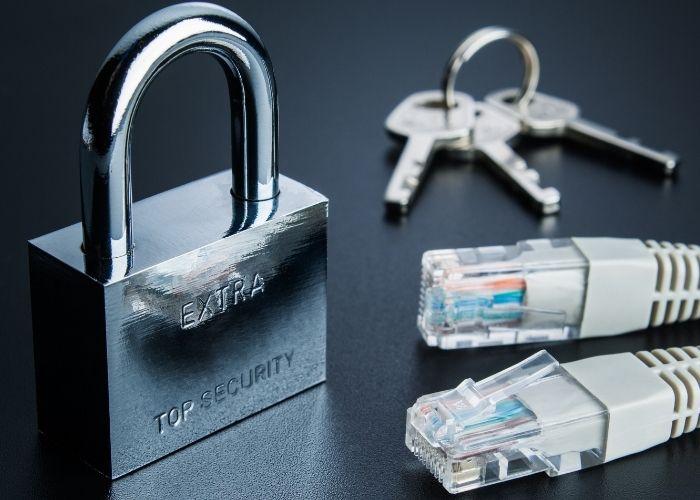How to Fix SSL Certificate Errors?
Conquer SSL errors! Pro insights for pros and businesses. Elevate your online security game. Explore, fix, and thrive confidently in the digital realm!

TL;DR
SSL certificates keep your website secure by encrypting data and verifying authenticity. Errors like expired certificates or domain mismatches can cause invalid SSL certificate, making your site inaccessible. Renew expired certificates promptly and ensure correct configuration to prevent issues. If you encounter errors, close your browser, clear browsing data, and check for malware. Contact your hosting company if issues persist.
How to Fix SSL Errors?
An SSL certificate is a standardized security technology for encrypting information between a visitor's browser and your website.
Visitors feel safer on SSL-encrypted sites because it helps keep sensitive information, such as passwords and payment information, secure. SSL certificates authenticate a website and encrypt the exchange of information, preventing third parties from accessing it.
In this way, communication between users and websites takes place securely. You can identify encrypted sites by the HTTPS in their URLs and the padlock icon in the address bar.
SSL certificates usually contain several main elements:
- Key: A mathematical key used for the encryption process between the web server and the browser. There is usually a pair: private key and public key.
- Digital Signature: An SSL certificate is signed by a trusted certification authority (CA). This digital signature verifies the validity of the certificate. ✍
- Certificate Holder Information: It contains information such as the name of the website, domain name, company name that belongs to the certificate.
SSL certificates are super important for beefing up security on the internet and keeping your personal info safe. Whether you're shopping online, doing online banking, or just sending emails, SSL certificates help ensure your data stays private and secure.

But lately, there's been a rise in those pesky error messages when you try to visit a site with SSL. No worries though, we've got some tips on "How to fix SSL errors?" Let's jump right in and tackle this together!
What is the SSL Certificate Error?
An SSL Certificate Error usually refers to a problem that a web browser or other internet-based application encounters when trying to establish a secure connection.
These errors can occur for a variety of reasons and indicate situations that need to be resolved by the website owner or certificate authority. This occurs when a visitor comes to your website and the web browser displays a warning message with a warning symbol or words indicating that there are problems with the security of your website. Here are some known SSL certificate errors:
- Invalid Certificate Error: The browser may show this error if the website's SSL certificate is not valid or has expired. Also, this type of error can be received if the certificate is not signed by one of the browser's trusted certificate authorities.
- Domain Name Not Compatible Error: Browsers display this error if the certificate does not match the domain name of the website. This usually occurs if the certificate owner incorrectly created or updated the certificate. ❌
- Secure Connection Error: Browsers issue this type of warning in the event of an error that prevents the connection from being established securely. This can often occur when encryption protocols are incompatible, keys or encryption algorithms are faulty.
- Self-Signed Certificate Error: "Self-signed" certificates created by the website owner and not signed by a trusted certificate authority can cause security warnings in browsers.
- Private Key Error: If the web server's private key is lost or incorrect, browsers may display security warnings. These errors are usually resolved by website owners or system administrators.
What causes the SSL certificate errors?
SSL certificates typically last a year, so it could be 365 days before you notice any issues. If they expire, your visitors might see errors on your site. Don't wait until they expire; renew them ASAP. If they're expired, renew them right away to avoid disruptions. Configuration errors can also cause accessibility problems. Keep your SSL up-to-date to ensure smooth browsing for everyone.

What should I do if I encounter certificate errors?
The first thing you need to understand about SSL certificate errors is that they are divided into two categories: user and system.
User Errors: These occur when a visitor tries to access your website but the browser cannot establish an encrypted connection to your site. The most common user errors are page not found messages such as certificate error 404s or timeout messages. However, there are other types of user errors, including dead connections, expired certificates, or unresponsive websites due to weak passwords.
System Errors: System errors occur on the hosting company's server and prevent it from establishing a secure session with your web server. Common system errors include an expired certificate or invalid private keys.

If you think your connection may not be secure, please complete the following steps:
- Close your browser window immediately.
- If you cannot leave the site without closing your browser window, at least close all open tabs.
- Clear browsing data for the website in question.
- To prevent future problems, make sure your computer is free of malware that could cause the problem and update your browser. Also, make sure that there is no network-level interference preventing access to the website.
If you are still getting a certificate error, it is a system error, and you should contact your hosting company to fix this issue.
Frequently Asked Questions
1: Why are SSL certificates important?
SSL certificates encrypt data and verify website authenticity, keeping your information secure while browsing. They're crucial for online activities like shopping and banking, ensuring your sensitive data remains private.
2: What are common SSL certificate errors?
Common errors include expired certificates, domain mismatches, and self-signed certificates. These issues can result in warnings or prevent secure connections to websites.
3: How do I fix SSL certificate errors as a user?
If you encounter a certificate error, close your browser, clear browsing data, and check for malware. Ensure your browser is up to date and try accessing the site again. If the issue persists, it might be a system error, and you should contact your hosting provider.
4: What causes SSL certificate errors?
SSL certificate errors can occur due to expired certificates, incorrect configurations, or domain mismatches. Renewing certificates promptly and ensuring proper configuration can help prevent these errors.
5: What should I do if I encounter a system error with SSL certificates?
If you're experiencing a system error, such as an expired certificate or invalid private keys, contact your hosting company for assistance. They can help resolve the issue and ensure secure connections to your website.




